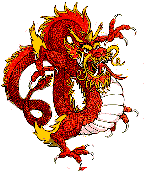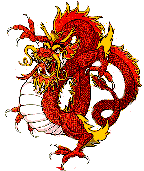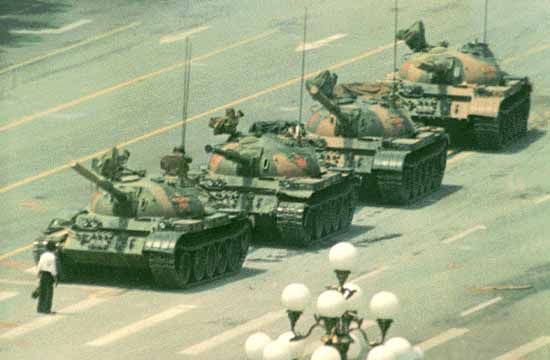 Chinese History
Chinese History

Before I started this section, I realized that it would be quite an undertaking. But what I didn't realize was that in order to put in my idea of a "Chinese History" section, I may have to spend three months translating the relevant material into English! So, as all slackers do, I copped out. Instead, I surfed the Web, and found the following links where you can brush up on your Chinese history. Hey, why re-invent the wheel, right?
Having said that, I found most sites to be somewhat lacking in the mythologies and legends department. So I did a little work and translated what I thought will be interesting to you, the reader. After all, I personally love Greek and Nordic mythologies. Call it the child in me or something.
A tidbit of fact: in the 4,643 years between the first national leader Huangdi to the last emporor Puyi in the twentieth century, China had 83 dynasties of various sizes and life spans, with 95 capital cities, and 559 male and female kings and emperors (162 kings and 397 emperors.) Many of these so called dynasties co-existed within the same period, occupying different areas of China, when the central government split up. An old saying sums up Chinese history: "the world, having split up for a while, will be consolidated, and having been united for a while, will split up again." This is a direct result of the hereditary system of the throne: a strong ruler will emerge from a time of civil unrest, unite the land; his immediate decendants might (and often might not) rule and bring peace and prosperity for a while; then a distant descendant will get the big idea into his head that the empire is his to squander, and rule as a tyrant; then another period of unrest follow, and another strong ruler would emerge to bring on the next dynastic cycle. This is evident even in today's China, even though the Communist Dynasty might deny this vehemently.
Pop quiz, hotshot: what do China, Taiwan, and Singapore, places with Chinese governments, have in common? They are all, in truth if not in name, ruled by an oligarchy of men, with a powerful figure at the top who is, if you think about it, takes the place of the Emperor of old. This is a reason why many Chinese people believe that democracy will never work in China: too many generations of imperial rule has ingrained the idea into our genes.
Period of Mythologies
A long long time ago, a star in the shape of an egg floated in nothingness. Within lived a giant named Pangu, who chiselled away with his axe in an attempt to free himself. After 18,000 years of hard work, he succeeded in cleaving the star in two. The upper half became gaseous and rose, while the lower half became the earth. However, all was in darkness, without light, heat, mountains, or water. So Pangu sacrificed himself and died, so that his right eye became the sun, left eye the moon, his blood the oceans and rivers, his hair the trees and flowers. His breath became the wind, his voice the thunder, his laughter the clear sky, his sadness the overcast sky. His limbs and stomach became the five mountains of Song, Tai, Hua, Heng, and Heng.
Then came the three sovereign: Sovereign of the Sky, Sovereign of the Earth, and Sovereign of Men. The three Sovereigns were sort of second class gods. The Sovereign of the Sky, who lived for 18,000 years, had twelve sons who helped him rule the increasing population. He also separated the population into tribes, having them each elect a capable man as chief (maybe he helped build the Tower of Babel too?) Tens of thousands of years later, the Sovereign of the Earth, who also lived for 18,000 years, was born. He regulated the operation of the sun and the moon, and decided that each thirty days shall be a month, and each twelve months shall be a year. The Sovereign of Men, who lived for 15,600 years, had nine brothers. He divided the land up into nine provinces, each ruled by one of his brother.
Then came the five nobles, who were sort of third class gods: You Chao, who showed the people how to build houses; Sui Ren, who taught people fire; Fu Xi, who taught people cooking, oracles, beareaucracy, music, marriage, fishing, hunting, and silk making; Nu Wo, who repaired the support between Heaven and Earth, which was broken in the battle between two ancient heroes; and Shen Nong, who taught people the use of herbs and domestication of certain animals.
Period of Legends
The difference between legends and mythology is that legends often have more truth to them. Even if a legend was all false, it would at least be more organized than mythology.
Huang Di (Yellow Emperor)
Chinese dyanastic history began with Huang Di, the Yellow Emperor. Here, the title "Emperor" is similar to a fourth class god, rather than the mortal "emperor" that it later became. In twenty-seventh century B.C., along the mid-stream section of Huang He (where it straightens out and flows to the sea) were thousands of tribes, with three dominant tribes at war with each other. These three were the declining Shen Nong tribe, decendants of Shen Nong, the Jiu Li tribe, whose chieftain Chi You and his nine sons were fierce warriors, and the You Xiong tribe, whose chieftain Ji Xuan Yuan was a politician, scientist, strategist, and soceror all in one.
The You Xiong tribe was located between the other two tribes, thus liable to be attacked from two fronts. So, in 2698 B.C., Ji Xuan Yuan took the initiative and attacked the Shen Nong tribe, which was easily overcome. He then engaged Chi You and the Jiu Li tribe. This was the first legendary battle in Chinese history, where the two sides were evenly matched, and much magic was called forth. In the end, Chi You opened his mouth and cast forth a thick fog, confusing the You Xiong army for three days. Ji Xuan Yuan then came up with what was the predecessor to the compass, thus preventing his troops from getting lost in the fog. Chi You then called forth the God of Wind and God of Rain, causing windstorms and huge downpours, threatening to turn the field into a stormy ocean. Ji Xuan Yuan then called forth a Drought Spirit, which has the power of causing drought for a few years wherever she went. Although her presence would normally be bad, she was the perfect weapon against the Gods of Wind and Rain, and the Gods fled. Ji Xuan Yuan then mounted a counter-attack on the Jiu Li army, routing them and killing Chi You, and thus achieved victory.
Chieftains from all the other tribes, facing his might, made him the "Son of Heaven", calling him the Huang Di (the Yellow Emperor.) Huang Di then established his capital at Xinzheng, and so began the Huang Di Dynasty. He also forbid other tribes to resort to violence to resolve conflict, and instead made them present their cases to him, and he would hand out his judgement.
Supposedly, the ancient civilization of China flourished under Ji Xuan Yuan. During his reign, he (or people near him) invented or taught people about housing, clothing, carriages, boats, weaponry, tactics, music, pottery, the feudal system, silk farming, the written characters, mathematics, astrology, and the lunar calendar. For the one hundred years of his reign, China was a veritable Garden of Eden, with no thieves and violence, good harvest every year, and even wild beasts and predatory birds did not hunt other animals (presumably, many predatory species became extinct from starvation then?). For all this, we Chinese still call ourselves the "descendants of Huang Di" even in the twentieth century.
When Ji Xuan Yuan was 152 years old, he left his capital and went on an inspection tour of the country. While on top of one mountain, a yellow dragon came down from the sky and carried him, and his seventy servants, off. From then on, his magical abilities left his decendants, and the name Di only referred to mortal emperors.
Yao
After several emperors, Yao (the Kind Emperor) came into power in 2358 BC. His greatest achievement was the refinement of the lunar calendar. During his 100-year reign, a great flood overcame the land (sounds familiar?) and he ordered the Xia tribe, who was the most skilled in waterworks, to avert the flood.
History of China
Leon Poon's Chinese history page - a fairly comprehensive introduction to Chinese history, with an extensive bibliography. The best English one I have seen yet on the World Wide Web.
Brief History of China - a Cliff notes style of summary of Chinese history
History of Chinese mathematics - an area not much developed in old China, but interesting nevertheless
The Opium War
The Opium War - witness imperialism and at its worse, all done in the name of fair trade of course (Jesse Helms should take a look at this)
History of Hong Kong
The History of Hong Kong - a more in-depth look by Tom Glasoe of St. Olaf College, Minnesota, USA
Tiananmen, 1989

Tiananmen, 1989 - a photo library of events at Tiananmen, 1989 by Christus Rex et Redemptor Mundi. If you are Chinese, go there and weep for your fellow people. If you are not, go there and weep for the idealistic dead.
Democracy in China? - commentary by Rich Geib on Tiananmen, 1989.
 © 1997
© 1997
This page hosted by  Get your own Free Home Page
Get your own Free Home Page
 Chinese History
Chinese History

 Chinese History
Chinese History

